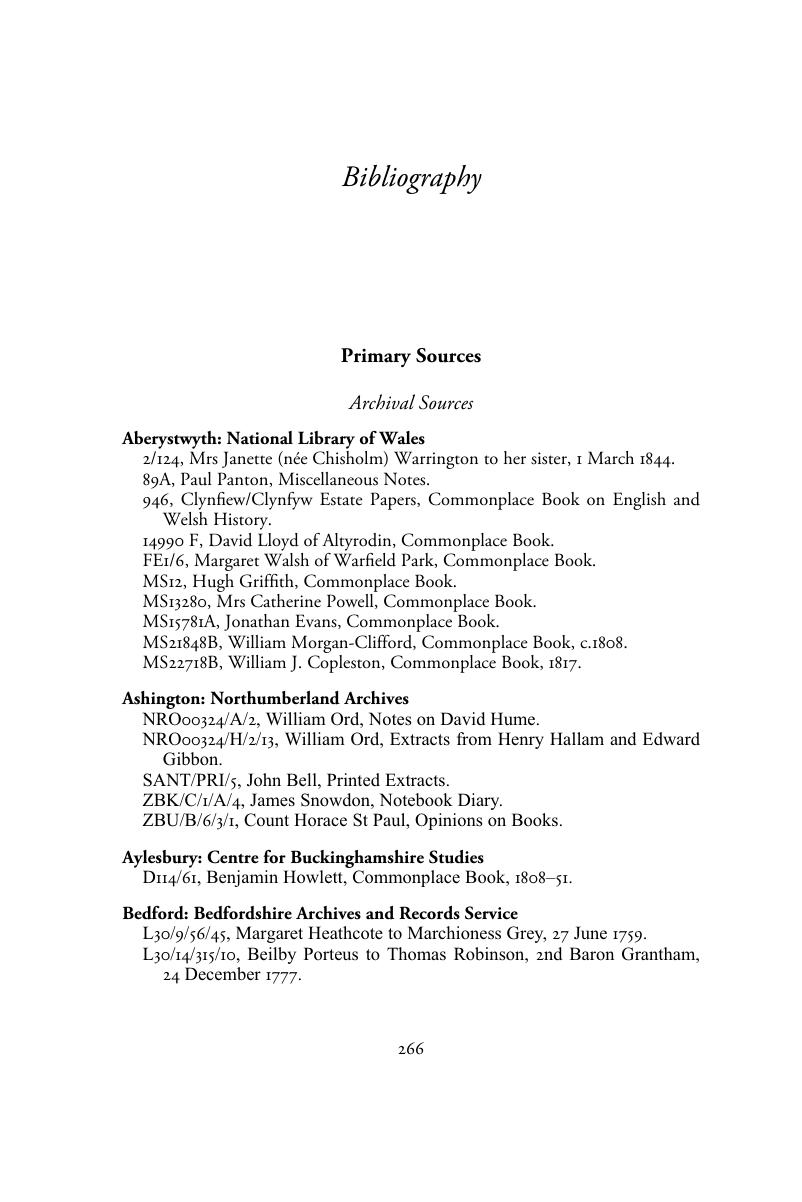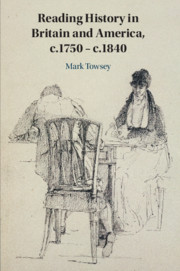Book contents
- Reading History in Britain and America, c.1750–c.1840
- Reading History in Britain and America, c.1750–c.1840
- Copyright page
- Dedication
- Contents
- Acknowledgements
- Abbreviations
- Introduction
- Chapter 1 History and the Life Cycle of the Reader
- Chapter 2 Sceptical Historiography and the Problem of Infidelity
- Chapter 3 Contesting Constitutional History
- Chapter 4 A Nation United?
- Chapter 5 Rewriting the American Nation
- Chapter 6 Historical Information and the Management of Empire
- Conclusion
- Bibliography
- Index
- References
Bibliography
Published online by Cambridge University Press: 19 April 2019
- Reading History in Britain and America, c.1750–c.1840
- Reading History in Britain and America, c.1750–c.1840
- Copyright page
- Dedication
- Contents
- Acknowledgements
- Abbreviations
- Introduction
- Chapter 1 History and the Life Cycle of the Reader
- Chapter 2 Sceptical Historiography and the Problem of Infidelity
- Chapter 3 Contesting Constitutional History
- Chapter 4 A Nation United?
- Chapter 5 Rewriting the American Nation
- Chapter 6 Historical Information and the Management of Empire
- Conclusion
- Bibliography
- Index
- References
Summary

- Type
- Chapter
- Information
- Reading History in Britain and America, c.1750–c.1840 , pp. 266 - 292Publisher: Cambridge University PressPrint publication year: 2019



